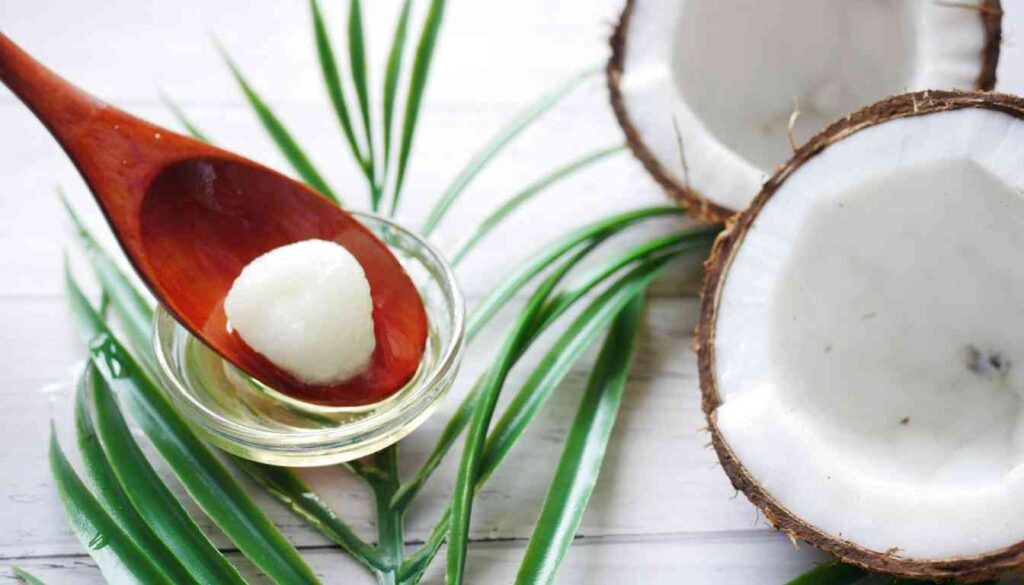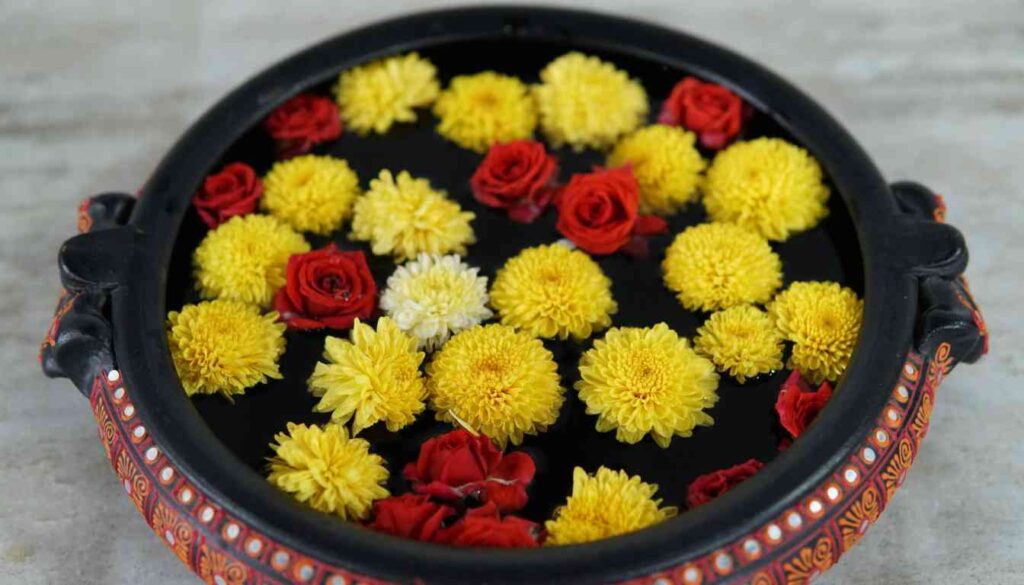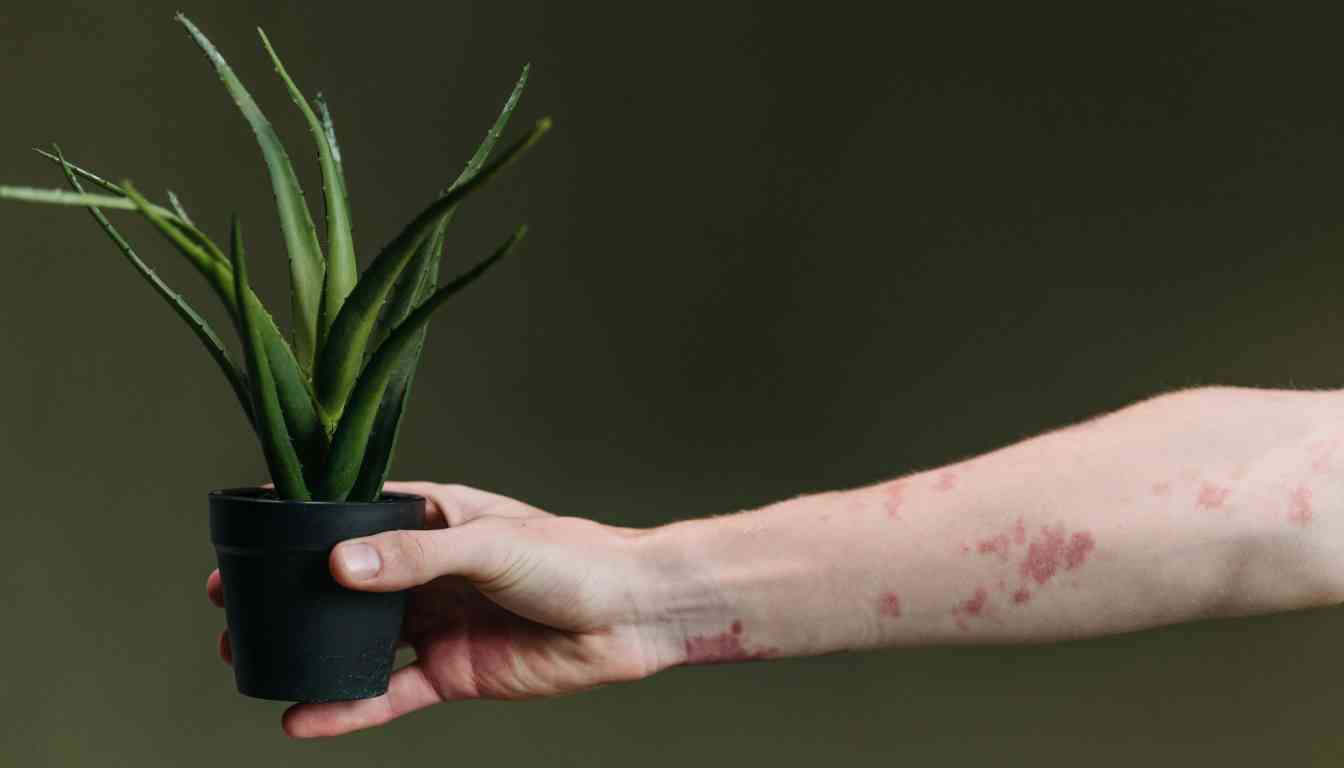Rashes are a common skin issue that can occur due to a variety of causes, such as allergies, infections, heat, or dryness. They often lead to itchiness, discomfort, and pain, and if left untreated, they can sometimes progress into an infection. While there are many medications available to treat rashes, numerous home remedies can provide relief. One of the most effective and simple home remedies for rashes is using a cold compress, which can help soothe the skin and reduce inflammation.
Applying a cold compress to the affected area can help to reduce inflammation and relieve itching. This can be done by wrapping a few ice cubes in a towel or using a cold, damp cloth.
Another popular home remedy for rashes is aloe vera. Aloe vera has anti-inflammatory and antimicrobial properties, which can help to reduce redness and irritation while also preventing infection. Applying aloe vera gel to the affected area can provide relief and promote healing.
Understanding Rashes – Home Remedies for Rashes
Definition and Types
A rash is a change in the texture or color of the skin that causes itching, redness, and discomfort. Rashes can occur anywhere on the body and can have various shapes and sizes. There are many types of rashes, and each type has its own set of symptoms and causes.
One common type of rash is eczema, which is a chronic condition that causes dry, itchy, and red patches on the skin. Another type of rash is psoriasis, which is an autoimmune disease that causes scaly, red patches on the skin. Atopic dermatitis is another type of rash that is characterized by dry, itchy, and inflamed skin.
Contact dermatitis is a rash that occurs when the skin comes into contact with an allergen or irritant. Diaper rash is a type of contact dermatitis that occurs in babies and young children. Measles is a viral infection that causes a rash on the face and body. Heat rash is a type of rash that occurs when the skin is exposed to heat and sweat. Rosacea is a chronic skin condition that causes redness and bumps on the face.
Causes – Home Remedies for Rashes
Rashes can be caused by a variety of factors, including allergies, heat, dryness, and dermatitis. They can also be caused by viral or bacterial infections, insect bites, and exposure to irritants or chemicals. Some medications can also cause rashes as a side effect.
Allergies can cause rashes when the skin comes into contact with an allergen, such as poison ivy or certain foods. Heat and dryness can cause rashes by irritating the skin and causing it to become inflamed. Dermatitis is a type of rash that occurs when the skin is exposed to an irritant or allergen.
Infections can also cause rashes, such as measles, which is a viral infection that causes a red rash on the face and body. Bacterial infections can cause rashes as well, such as impetigo, which is a bacterial infection that causes red, itchy patches on the skin.
If you experience a rash that is painful, swollen, or accompanied by other signs and symptoms, it is important to seek medical attention. Some rashes can be chronic and require ongoing treatment, such as eczema or psoriasis. Treatment for rashes may include over-the-counter creams or ointments, prescription medications, or lifestyle changes to avoid triggers.
Natural Home Remedies for Rashes
As someone who has struggled with rashes, I know how frustrating and uncomfortable they can be. Fortunately, several natural home remedies can help alleviate the symptoms of rashes. Here are some of the most effective remedies that I have found:
Baking Soda and Coconut Oil Paste
Mixing baking soda and coconut oil to create a paste can help to soothe itchy and inflamed skin. Baking soda has anti-inflammatory properties, while coconut oil is a natural moisturizer that can help lock in moisture and prevent further dryness.
Wild Pansy Compress – Home Remedies for Rashes
Wild pansy, also known as heartsease, has been used for centuries to treat skin conditions. To create a compress, steep wild pansy leaves in boiling water for several minutes, then strain and allow the liquid to cool. Soak a clean cloth in the liquid and apply it to the affected area for several minutes.
Chamomile Compress
Chamomile is another herb that has anti-inflammatory properties and can help to soothe irritated skin. Steep chamomile tea bags in boiling water for several minutes, then allow the liquid to cool. Soak a clean cloth in the liquid and apply it to the affected area for several minutes.
Peppermint Essential Oil – Home Remedies for Rashes
Peppermint essential oil has natural anti-inflammatory and antimicrobial properties, making it an effective remedy for rashes. Mix a few drops of peppermint essential oil with a carrier oil, such as coconut or olive oil, and apply it to the affected area.
Epsom Salt Bath
Taking an Epsom salt bath can help to soothe itchy and inflamed skin. Epsom salt contains magnesium, which has anti-inflammatory properties. Add a cup of Epsom salt to a warm bath and soak for 20-30 minutes.
Rosewater and Aloe Vera Gel – Home Remedies for Rashes
Mixing rosewater and aloe vera gel can help to soothe irritated skin and reduce redness. Aloe vera gel is a natural moisturizer that can help lock in moisture and prevent further dryness, while rosewater has anti-inflammatory properties.
Medicated Marigold Paste
Marigolds, also known as calendula, have been used for centuries to treat skin conditions. To create a medicated paste, mix marigold petals with carrier oil, such as coconut or olive oil, and apply it to the affected area.
Apple Cider Vinegar
Apple cider vinegar has natural antimicrobial properties that can help to kill bacteria and fungi that may be causing the rash. Mix equal parts apple cider vinegar and water and apply it to the affected area with a clean cloth.
Broadleaf Plantain Leaf Tea – Home Remedies for Rashes
Broadleaf plantain, also known as white man’s foot, has anti-inflammatory properties and can help to soothe irritated skin. Steep broadleaf plantain leaves in boiling water for several minutes, then strain and allow the liquid to cool. Drink the tea or apply it to the affected area with a clean cloth.
These natural remedies can be effective in treating rashes, but it’s important to remember that everyone’s skin is different. If your rash persists or worsens, it’s important to seek medical advice.
When to See a Doctor – Home Remedies for Rashes

As effective as home remedies for rashes can be, there are times when you should seek medical attention. Here are some signs that indicate it’s time to visit a doctor:
Persistent or Severe Rashes
If your rash doesn’t go away after a few days, or if it gets worse, it may be a sign of a chronic condition that requires medical attention. Additionally, if your rash is painful, swollen, or accompanied by blisters or pus, it’s important to see a doctor. These symptoms can be a sign of a more serious underlying condition that needs to be addressed.
Other Symptoms Present
If you experience other signs and symptoms along with your rash, it’s important to seek medical attention. For example, if you have a fever, chills, or body aches, it could be a sign of an infection. If you have difficulty breathing or swallowing, or if your throat feels tight, it could be a sign of a severe allergic reaction. In these cases, seeking medical attention is crucial to prevent further complications.
Remember, if you’re not sure whether your rash requires medical attention, it’s always best to err on the side of caution and consult a doctor. They can help you determine the underlying cause of your rash and recommend the best course of treatment.
Before You Go – Home Remedies for Rashes
Rashes can be uncomfortable and unsightly, but there are many effective home remedies that can help alleviate symptoms and promote healing. While some remedies may work better for certain types of rashes, many of the remedies listed above are versatile and can be used for a variety of skin conditions.
It is important to note that while home remedies can be effective, they are not a substitute for professional medical advice. If your rash is severe, persistent, or accompanied by other symptoms, it is important to seek medical attention.
In addition to the remedies listed above, there are a few simple lifestyle changes you can make to help prevent rashes from occurring in the first place. These include:
- Avoiding known allergens and irritants
- Keeping your skin clean and dry
- Wearing loose-fitting clothing made of breathable materials
- Using mild, fragrance-free skincare products
By incorporating these tips into your daily routine and utilizing the home remedies listed above, you can help keep your skin healthy and rash-free.
Home Remedies for Rashes and TheHerbProf.com: A Soothing Connection

Let’s chat about something close to our hearts – Home Remedies for Rashes! Now, you might be wondering, how does this connect with our favorite site, TheHerbProf.com? Well, let’s find out!
Our Home Remedies for Rashes are a blessing. They’re like a soothing balm for your skin, easing the itch and discomfort with the healing power of nature. It’s like having your herbalist!
Now, let’s talk about TheHerbProf.com. This site is our herb haven, our go-to for all things herbal. From growing tips to mouth-watering recipes, it’s got us covered. But it’s more than just a site, it’s a community of herb lovers, just like us!
So, how do these two connect? Picture this. You’ve just harvested your homegrown herbs. You’re excited to use them, and what better way than in a home remedy for rashes? You whip up the remedy, and it works wonders! Now, you want to share this joy with others. That’s where TheHerbProf.com comes in. You hop onto the site and share your recipe, your tips, and your experiences. You learn from others, and they learn from you. It’s a beautiful cycle of healing, sharing, and learning.
In short, Home Remedies for Rashes and TheHerbProf.com are a match made in herb heaven. They complement each other, each enhancing the other’s value. So, keep healing, keep exploring TheHerbProf.com, and most importantly, keep loving herbs!
References – Home Remedies for Rashes
Little Herb Encyclopedia, by Jack Ritchason; N.D., Woodland Publishing Incorporated, 1995
The Ultimate Healing System, Course Manual, Copyright 1985, Don Lepore
Planetary Herbology, Michael Tierra, C.A., N.D., Lotus Press, 1988
Handbook of Medicinal Herbs, by James A. Duke, Pub. CRP Second Edition 2007
The Complete Medicinal Herbal, by Penelope Ody, Published by Dorling Kindersley
Check the Following Articles!
Natural Ways: Home Remedies for Gum Infection
Home Remedies for Knee Pain: Ease Discomfort Naturally
Home Remedies Roaches: Get Rid of Cockroaches Now!
Frequently Asked Questions – Home Remedies for Rashes
1. How to cure rashes on the face naturally
If you have a rash on your face, there are some natural remedies that you can try to alleviate the symptoms. One of the most effective remedies is to apply a cold compress to the affected area. You can use a clean cloth soaked in cold water or ice wrapped in a towel. This can help reduce inflammation and itching.
Another home remedy is to apply aloe vera gel to the rash. Aloe vera has anti-inflammatory and soothing properties that can help reduce redness and itching. You can also apply coconut oil to the rash, as it has antibacterial and anti-inflammatory properties that can help reduce inflammation and itching.
2. When to worry about a rash in adults
If you have a rash that is accompanied by other symptoms such as fever, headache, or difficulty breathing, you should seek medical attention immediately. Additionally, if the rash is spreading rapidly, is painful, or is not responding to home remedies, you should see a doctor.
3. Medicine for skin rashes and itching
There are several over-the-counter medications that can help relieve the symptoms of skin rashes and itching. Antihistamines can help reduce itching and swelling, while hydrocortisone cream can help reduce inflammation and redness. Calamine lotion can also be used to soothe the skin and reduce itching.
4. Types of rashes
Many different types of rashes can occur on the skin, including contact dermatitis, eczema, psoriasis, and hives. Each type of rash has its own set of symptoms and causes, and treatment may vary depending on the type of rash.
5. Lip rash home remedies
If you have a rash on your lips, there are some home remedies that you can try to alleviate the symptoms. One of the most effective remedies is to apply aloe vera gel to the rash. Aloe vera has anti-inflammatory and soothing properties that can help reduce redness and itching. You can also apply coconut oil to the rash, as it has antibacterial and anti-inflammatory properties that can help reduce inflammation and itching.
6. What clears up skin rashes?
The best way to clear up a skin rash depends on the cause of the rash. If the rash is caused by an allergic reaction, avoiding the allergen is the best way to clear up the rash. If the rash is caused by a fungal infection, antifungal medication may be necessary. In some cases, over-the-counter creams or ointments may be effective in clearing up a skin rash.
